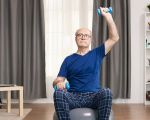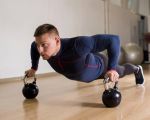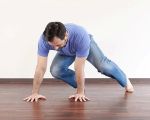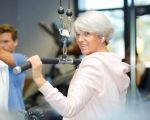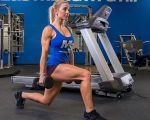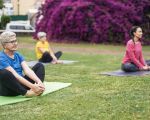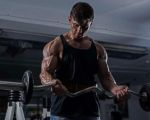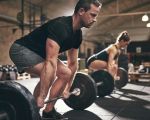Nutrition Plans to Fuel Your Workouts
As someone who has always been passionate about fitness, I’ve come to realize that what you eat plays a crucial role in how well you perform during workouts. A balanced nutrition plan not only helps you get the most out of your exercise but also aids in recovery, muscle building, and overall health. If you're looking to optimize your fitness journey, focusing on the right nutrition plan is key. Let me take you through how proper nutrition can fuel your workouts, the best foods to eat, and how to structure your meals before and after exercising.
1. The Importance of Nutrition for Workouts
When I first started working out, I underestimated the importance of food in my training regimen. I thought it was all about the effort I put in at the gym. However, as I learned more, I realized that nutrition directly impacts my energy levels, strength, and endurance. Whether you're lifting weights, running, or practicing yoga, the right nutrition will provide you with the fuel needed to push through your workouts and see significant results.
1.1 Fueling for Energy
One of the key things I’ve learned is that fueling my body with the right nutrients before a workout makes a huge difference. Carbohydrates are especially important for energy, as they are stored in the muscles and liver as glycogen, which is your body’s preferred fuel source during high-intensity exercise. Without adequate carbs, you may feel fatigued or sluggish during your workouts. I’ve found that consuming complex carbohydrates, like oats or whole grains, gives me a sustained energy release throughout my workout.
1.2 Muscle Building and Repair
Another crucial aspect of workout nutrition is protein. Protein is essential for muscle building and repair. After intense physical activity, your muscles experience tiny tears, and protein helps repair these tears, leading to muscle growth. Over the years, I've adjusted my post-workout meals to include lean sources of protein such as chicken, fish, or plant-based options like lentils. This has helped me recover faster and see better results.
2. What to Eat Before Your Workout
Eating the right foods before a workout can set the tone for the entire session. I’ve learned that eating the wrong foods or not eating at all can leave me feeling weak or lightheaded. The goal of a pre-workout meal is to fuel your body for the upcoming physical activity. Ideally, this meal should be consumed about 30-60 minutes before your workout.
2.1 The Ideal Pre-Workout Meal
For me, the best pre-workout meal includes a combination of carbohydrates and protein. For example, I might have a banana with peanut butter or a whole grain toast with avocado. These foods provide me with quick-digesting carbs for energy and protein for muscle support. I try to avoid foods that are high in fat or fiber right before a workout, as they can slow digestion and cause discomfort during exercise.
2.2 Timing Is Everything
It’s important to give your body time to digest the food before working out. I’ve found that eating 30 minutes before my workout works best for me, but some people may need a bit more time. Everyone’s body is different, so it’s crucial to experiment with timing and food types to see what works best for you.
3. Post-Workout Nutrition: Recover and Replenish
Post-workout nutrition is just as important as pre-workout meals. After an intense workout, your muscles are depleted of glycogen and may be slightly damaged. To help with recovery, I focus on replenishing glycogen stores and providing protein for muscle repair.
3.1 The Best Post-Workout Foods
Within 30 minutes of finishing my workout, I make sure to eat a meal rich in both carbs and protein. A smoothie with protein powder, fruits, and some oats has been a go-to for me. The protein helps repair muscle damage, while the carbs replenish my glycogen stores. Some other great post-workout meals include grilled chicken with sweet potatoes, or a quinoa salad with beans and veggies. It's important to remember that the quicker you replenish your nutrients, the better your recovery will be.
3.2 Hydration: A Key Component
During and after my workouts, hydration plays a major role. I always make sure to drink plenty of water before, during, and after my session. Dehydration can lead to fatigue, dizziness, and poor performance, so I’ve found that keeping a water bottle with me at all times ensures that I’m staying properly hydrated.
4. Supplements to Consider
While I’ve always preferred to get my nutrients from whole foods, there are certain supplements that can help support my fitness goals. Protein powder is the most common supplement I use, as it helps me hit my protein targets when I’m not able to have a full meal right after working out. Creatine and branched-chain amino acids (BCAAs) are also popular among athletes for enhancing strength and reducing muscle breakdown. However, I always consult with my healthcare provider before introducing any new supplements into my routine.
4.1 The Role of Protein Powders
Protein powders are a quick and easy way to ensure I’m getting enough protein after a workout. I prefer plant-based protein powder for its digestibility and lower environmental impact. When choosing a protein supplement, I look for high-quality options with minimal additives or sugars. This has helped me stay on track with my fitness goals while keeping my nutrition balanced.
5. How to Customize Your Nutrition Plan
What works for one person may not work for another, so it's essential to tailor your nutrition plan to your specific needs and goals. I’ve learned that what I eat depends on the intensity of my workout, my fitness objectives (whether it’s building muscle, losing weight, or enhancing endurance), and my unique metabolic rate.
5.1 Tracking Progress
To better understand how my nutrition impacts my performance, I track my meals and workouts. Using an app to log my food and exercise has helped me see patterns in my energy levels and recovery. This also allows me to adjust my meals if I’m not feeling as strong or energized as I should be during my workouts.
5.2 Experimentation and Flexibility
Through trial and error, I’ve figured out what foods make me feel the best during and after my workouts. That’s why I encourage you to experiment with different food combinations and meal timings. Over time, you’ll learn what works for your body, and that’s the key to sustainable fitness success.

